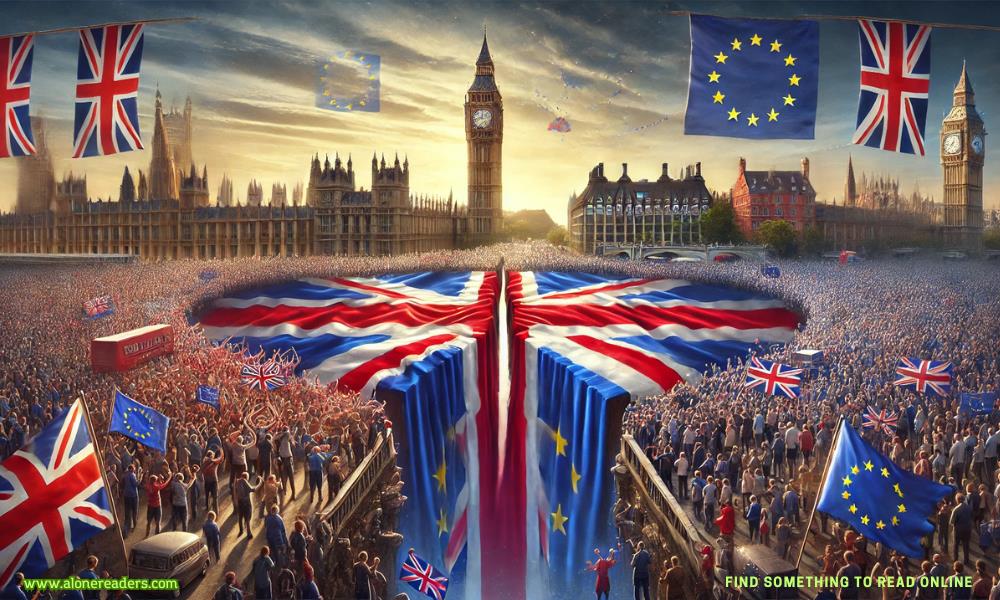
The Brexit referendum, held on June 23, 2016, marked a defining moment in the United Kingdom's history. Called by then-Prime Minister David Cameron, the referendum asked voters a seemingly straightforward question: "Should the United Kingdom remain a member of the European Union or leave the European Union?" The results, however, revealed deep divisions within British society and set the UK on a path of profound political, economic, and social transformation.
David Cameron's decision to call the referendum stemmed from mounting pressure within his own Conservative Party, which had long been divided over the UK's relationship with the European Union. Euroskeptic sentiment had grown among segments of the public and political establishment, fueled by concerns over sovereignty, immigration, and the EU's perceived bureaucratic overreach. By promising a referendum in his 2015 general election campaign, Cameron sought to unite his party and quell the rising influence of the UK Independence Party (UKIP), led by Nigel Farage.
The campaign leading up to the referendum was contentious and polarized, with two opposing sides—Remain and Leave—presenting starkly different visions for the UK's future. The Remain camp, supported by Cameron and prominent figures such as former Prime Ministers Tony Blair and John Major, emphasized the economic risks of leaving the EU. They argued that continued membership in the bloc was essential for trade, investment, and Britain's standing on the global stage. On the other hand, the Leave campaign, championed by figures like Boris Johnson and Michael Gove, focused on reclaiming sovereignty, controlling immigration, and reducing financial contributions to the EU. Their slogan, "Take Back Control," resonated with voters who felt disconnected from the decisions made in Brussels.
The result of the referendum shocked many observers. With 51.9% voting to leave and 48.1% voting to remain, the outcome revealed a nation divided along geographic, generational, and socioeconomic lines. England and Wales largely supported leaving, while Scotland and Northern Ireland voted to remain. Younger voters overwhelmingly favored staying in the EU, whereas older generations leaned toward leaving. The result exposed and deepened existing fault lines within British society.
The immediate aftermath of the vote was turbulent. David Cameron, having staked his political future on a Remain victory, announced his resignation the day after the referendum. This paved the way for Theresa May to become Prime Minister, tasked with navigating the complex process of exiting the EU. The result also triggered significant economic uncertainty, with the pound plummeting to its lowest levels in decades and businesses expressing concerns about the future of trade and investment.
Brexit negotiations proved to be fraught and protracted. The process of disentangling the UK from over four decades of EU laws, regulations, and agreements was unprecedented and complex. Key issues, such as the rights of EU citizens in the UK and British citizens in the EU, the financial settlement, and the future trading relationship, became sticking points in negotiations. The border between Northern Ireland and the Republic of Ireland emerged as one of the most contentious issues, threatening to reignite historical tensions.
Politically, Brexit reshaped the UK landscape. The referendum fueled the rise of populist rhetoric and disrupted traditional party allegiances. It also prompted calls for Scottish independence, as Scotland's strong Remain vote clashed with the overall UK result. Similarly, the vote heightened tensions in Northern Ireland, where concerns about the potential re-emergence of a hard border raised fears about the Good Friday Agreement's stability.
For many, the Brexit vote symbolized a broader discontent with globalization and elite governance. It reflected frustrations over stagnant wages, economic inequality, and a perceived loss of national identity. Yet, it also left lingering questions about the UK's place in the world. Supporters of Brexit envisioned a "Global Britain" free to strike its own trade deals and chart an independent path, while critics warned of diminished influence and economic isolation.
The Brexit referendum remains a contentious and divisive chapter in British history. Its impact continues to unfold, shaping debates about democracy, sovereignty, and the economic future of the UK. While it provided a decisive answer to the question of EU membership, it also left many questions unresolved, ensuring that the consequences of that fateful vote will be felt for generations to come.